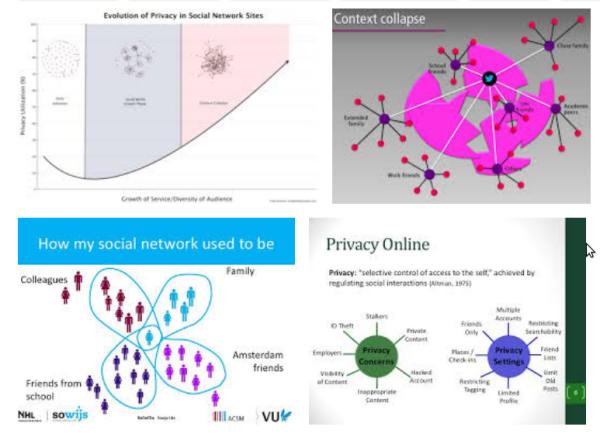That collapse brought by Facebook, and its Whatsapp/Telegram corollary
If the research is any indication, writes Dr Raynes-Goldie, Facebook and other social media make people “feel inadequate or maybe even a bit depressed”. Why, and how? The answer, as they say “is complicated”, but one part of it is especially fascinating, and everybody should be aware of it.
Context collapse, aka “ignoring how human being NEED to function”

Since the dawn of society, individuals have been able to pursue happyness, or at least function decently, also thanks to the possibility to “act and feel” differently in different contexts. Family, friends, workplace, church, amateur football team, volunteering… The way we behave and expect to be treated by others needs not to be the same in all those context. Actually, it needs to not be the same. We humans of today have all functioned, and evolved for millennia, counting on this possibility, and even more on the fact that we could keep each context at least partly separate from all the others.
Treat your boss like your daughter. Because Facebook
Then came Facebook, saying that it was all wrong, and making quite hard to have really separate profiles for e.g. family, friends, work… On Facebook, all your contexts collapse into ONE, and only one, general-purpose “YOU”. As Raynes-Goldie puts it, in 2008, she asked Facebook CEO Mark Zuckerberg (then 24 years old) “Why did Facebook make everyone be the same for all of their contacts?”
Backed by his own decades of advanced studies of human psychology and sociology, as well by his own general maturity, Zuckerberg answered that “he had designed the site to be that way on purpose, [also because] behaving differently in different social situations was “lying””.
The realisation that Facebook’s context collapse is intentional, says Raynes-Goldie, is “the key to understanding why Facebook may not be so great for your mental health”.
Basically, to cope with this imposition by Facebook you need to be your “perfect self” always, always in the same way, no matter who you are talking with (friend, relative, coworker, whoever). Yes, some people do exactly the opposite, being their worst self all the time. But perfect or worst makes no difference. In both cases, the real problem is the “always ONE, and the same” part.
It doesn’t need to be that way. It wasn’t, in the past, and Raynes-Goldie points that out. But any social network built for total control, with a centralized architecture, needs context collapse to work. Even if it makes lots of people depressed.
And the Whatsapp/Telegram corollary is…
…That the same “context collapse” problem is present, albeit in different ways and grades, in every instant messaging system that is so DUMB to use phone numbers as user accounts. If you use Whatsapp or Telegram for instant messaging, it is much harder than it should be to be “available” for your partner, but not for your boss, or vice-versa.
Both sociologically and technologically, instead, the really advanced systems are those like email: as many totally unrelated accounts (=CONTEXTS!) as you want, all usable at the same time from the same device, whatever that device is.
Who writes this, why, and how to help
I am Marco Fioretti, tech writer and aspiring polymath doing human-digital research and popularization.
I do it because YOUR civil rights and the quality of YOUR life depend every year more on how software is used AROUND you.
To this end, I have already shared more than a million words on this blog, without any paywall or user tracking, and am sharing the next million through a newsletter, also without any paywall.
The more direct support I get, the more I can continue to inform for free parents, teachers, decision makers, and everybody else who should know more stuff like this. You can support me with paid subscriptions to my newsletter, donations via PayPal (mfioretti@nexaima.net) or LiberaPay, or in any of the other ways listed here.THANKS for your support!